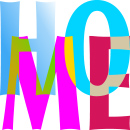
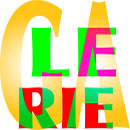

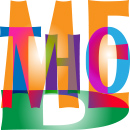
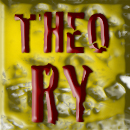


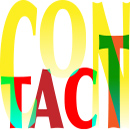


 |
Summary of the previous chapter:
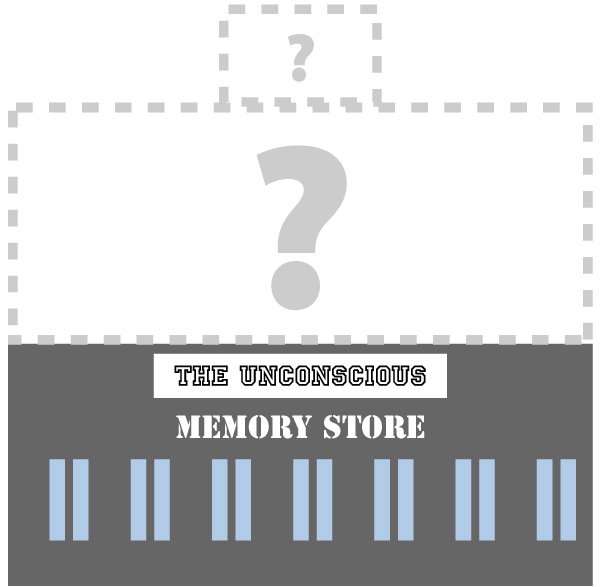
|
The Unconscious, thoughts factory
If we accepted the fact that memory is a phenomenon entirely contained and controlled in an unconscious way, we will be able to admit that, logically, the master of memory is also the source of all thought.
All our memories belong to the Unconscious. All our thoughts are sent by the Unconscious to the conscience.
We perceive the thoughts through the conscience, but, as we see toys in the toyshop, the seller did not make them!
How conscience, which knows nothing of the contents of memory, could assemble two words to make a sentence, if nothing prompts?
Admittedly, the phrase "I'm talking about." seems to be whole to consciousness, as en evidence consciously desired.
From where do the words come for composing the sentence? From memory ... so, from the Unconscious.
Any assemblage of words that "go through the conscience" is produced by the Unconscious, and our spoken thoughts are only perceived through the conscience.
By what strange phenomenon can conscience be confused with thought?
Our Unconscious early learned to send thoughts in line with the state of consciousness.
It's hot. Does the conscience perceivs the heat? The Unconscious sends: "Oh, it's hot!"
The baby has learned to say "Mom" to his mother to call her, keep her close to him, make her smile... It is the Unconscious of the baby who has learned this, and all the following vocabulary and behaviors.
The Unconscious acts in line with reality as it appears through the conscience (Note: Reality is seen through the window of the conscience and the Unconscious alone assesses the situation) and it ensures the continuity of its production. One thinks as well depending on the outside and what we previously thought. |
Yet we seem to consciously respond.
For example, when we make a nonsense (an object stored in the wrong place), we admonish ourselves mentally, consciously...
The Unconscious just reacts the best he can at the situation, which he is at the origin, because he is likely to be wrong, then (hopefully) he correcst his mistakes.
Where was I? What did I mean? Where am I? Euhhhhhhh!
Just as relations between human beings are facilitated by small sentences for oiling the wheels (Please, thank you, you're welcome...), the Unconscious has a specific vocabulary to reduce situations of embarrassment, that may occur and undermine the fiction of the thinking conscience, in which we believe most often and where the Unconscious is the active accomplice.
Whenever the Unconscious disrupts production, because of the logic of its own, he sends lubricant thoughts, so that these dysfunctions are inconsistent as painless and obvious as possible. |
Complex movements
Learning a complex movement (gymnastics, car shifting, mathematical formula, etc.) requires the transition to consciousness, but when motion is acquired, managed, it can finally become a rote; it is only then that we become effective, rapid, precise, functional.
If, by chance, there is an apparent intervention of consciousness in the execution of a movement known, then this is a hindrance to the smooth running of the process (we miss the gymnastics move, we hold, we do not know where we are in the process ...).
Insofar as consciousness is mono-task, since there are several simultaneous parameters to take into account, the multi-task activity of the Unconscious is cut into sections, sabotaged, braked, because conscience, to offset its limitations (as the Unconscious compensates for the limitations of conscience ...), tries to solve all problems at full speed, alternating spotlights, trying to cover the whole range of complex activities around... As a journalist who would cover at the same time several different events in distant places... He make a fleeting appearance at one point, phones to another, but nobody can do everything...
While the Unconscious, him, can do several things at once: Smoking and calling by phone, while driving a car, for example. Admittedly, the quality is not there, especially at the conscious level where they will flit from one activity to another, increasing the risk of a traffic accident. Certainly, in contact with reality, the Unconscious is not as effective when he works without the conscience. It is less dangerous to call mechanically than to drive mechanically...
The more we do things at the same time, the more the Unconscious divides the attention of conscience between different activities. The more the light beam of conscience is forced to illuminate several successive stages, and the more darkness increases proportionally.
Most of us can drive while listening to the radio, but studies have shown that a driver who phones has less reflexes than a slightly drunk driver...
Through conscience, the Unconscious carries out a task of monitoring the real, which is considerably diminished when using simultaneously conscience to another task. It is distraction... |
Conscience is not just a passive actor, who repeats what the prompter says, it is also a stage where the Unconscious sends his suggestions of action, to check their value.
And in the little theater of our conscience, after a long monologue or a fraction of thinking, a decision of action is consciously taken… by the Unconscious!
Hey! Conscience is the idiot of the village! It would have no argument to make (where would it look for it?). As well ask his opinion to a TV screen!
This sending of thoughts to conscience is not free. It responds to a function of analysis, visualization, through the conscience, that we shall analyze a little further.
The dream
In the dream, the conscience has the same role as during wakefulness.
The powers of the Unconscious manifested dramatically, through imaginative projections of sensations, which reproduce what conscience is able to feel awake.
The Unconscious is engaged in an imitation of reality (even more persuasive than it is for convincing him ...).
According to its own logic, the Unconscious emits false situations (often modeled closely on old memories), probably to ensure that the conscience plays a role (passive, but essential) who is always its and which will be described in next chapter.
Through dreams, the unconscious does work of storage, updating, checking the validity of its data, by repassing in the ordeal of conscience, saving a passage through the real.
A mother dreams of her young son of six months. His nappy is full ... She will have to change his pajamas. This one is misplaced in the cupboard. She would have to arrange the cupboard of her son ...
She wakes up with this thought, that she would have to arrange the cabinet of his son. But in reality, the Unconscious has cue points, which are sent to complete his thoughts: The son is not six months anymore, but fifteen years!
A few seconds were enough for the awaken Unconscious to neutralize the memory of the dream, to restore a coherent thought with reality. While in the dream, the Unconscious played the game of his own fiction.
Safely... |
On the screen of the conscience, the Unconscious sees better the outcome of his trials and errors, as a toy out of a dark box that you put in the light...
Spoken thoughts, thought music, thought pictures or suggestions for action, everything comes from the Unconscious, so fluid and natural, because that's how we learned to function mentally. How could we be shocked?
Fortunately, it is not conscience, this dumb idiot, which plays an active role. We'll see what is its exact role — and it is valuable — but in the next chapter...
Actually, I am on my way translating my philosophical stuff in English.
It's just a question of time. Come back tomorrow! There will be even more…
|












